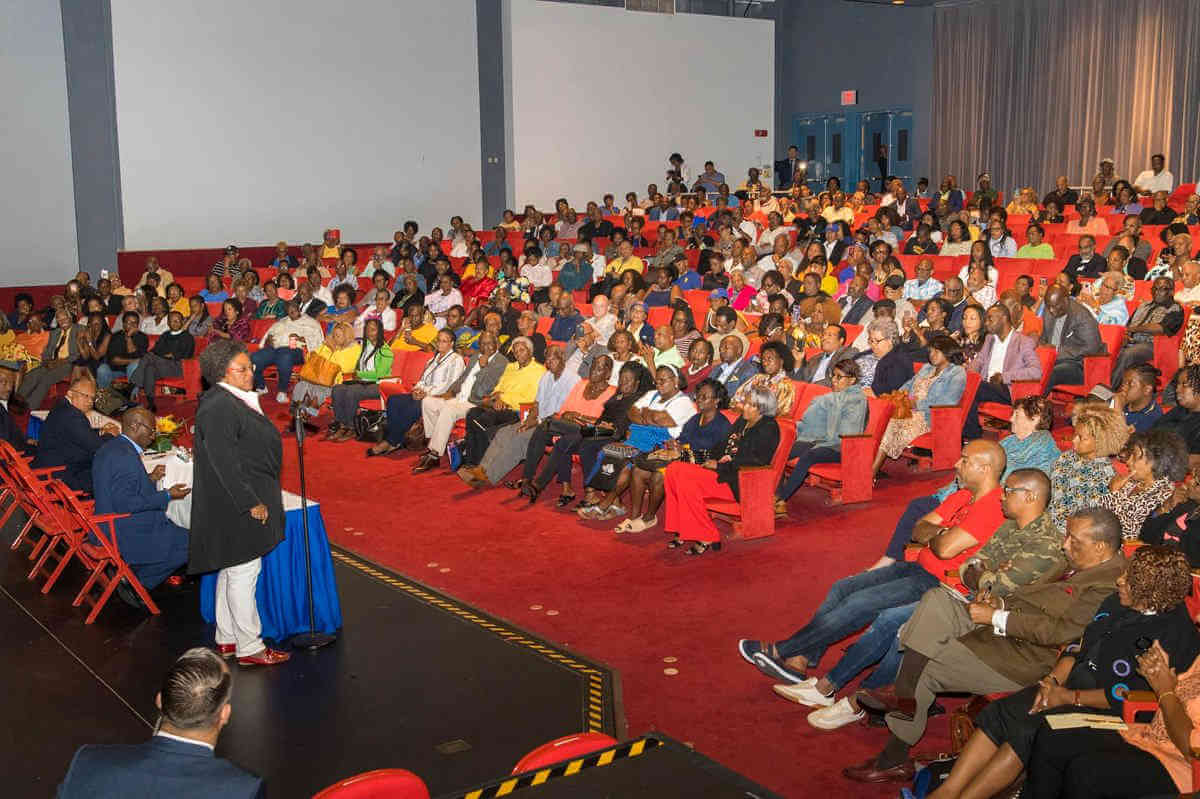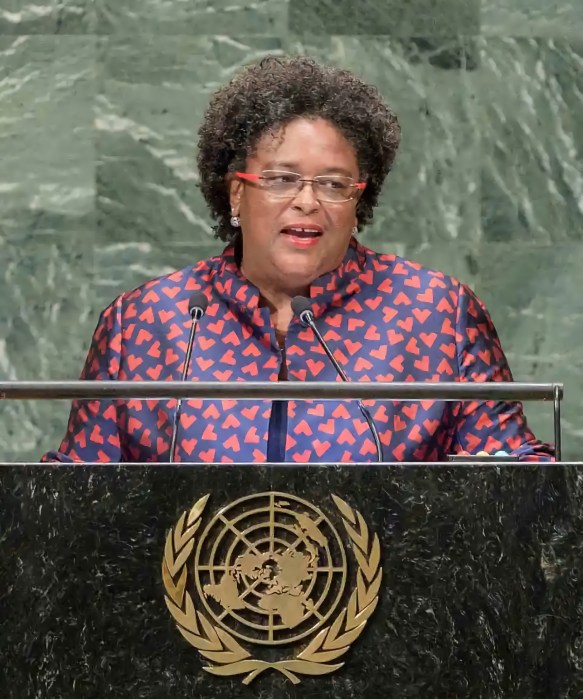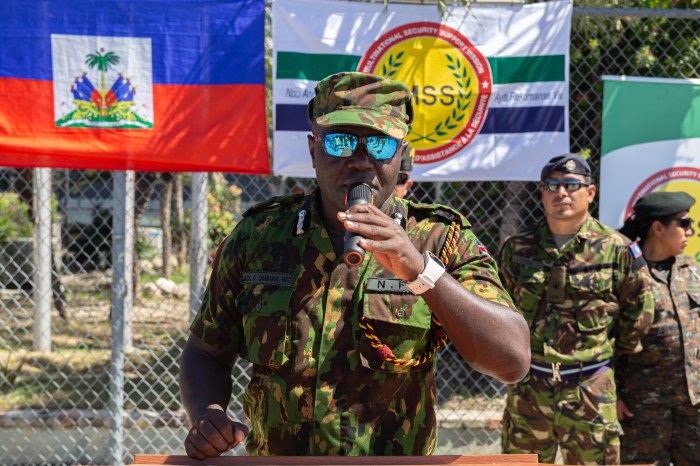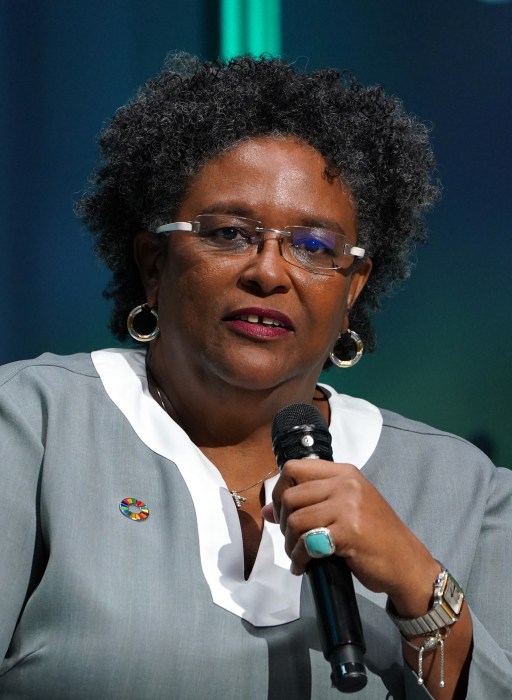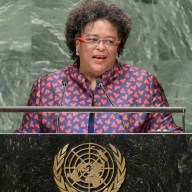Barbados is changing direction for foreign trade and cooperation from the traditional north American and Europe to the African continent, some middle eastern states and China.
The thrust into Africa is seen as a reversal of the Middle Passage of the triangular slave trade that saw millions of Africans some 400 years ago captured and shipped across to the Atlantic to the Caribbean to become slaves whose descendants now represent the majority population of the region.
“We are going to claim our Atlantic destiny,” Barbados Prime Minister Mia Mottley told the New York Barbadian diaspora last Sunday, adding that adopting an easterly outlook, “does not in any way compromise our Caribbean-ness.”
Mottley made the declaration as she and a few of her Cabinet ministers met New York Bajans in the Leon M. Goldstein Performance Center at Kingsborough Community College, where the diaspora was updated on government policies and changes.
Describing Bajan New Yorkers as the island’s 31st constituency in addition to the 30 that make up Barbados’ parliament, Mottley bemoaned the fact of her country’s singular focus on North America and Europe since it attained independence in 1966.
The Barbados new thrust is consistent with what appears as a Caribbean movement, and presidents of Ghana and Kenya have visited the region earlier this year.
She indicated too that during the Barbados leg of a Caribbean visit by Kenya’s President, Uhuru Kenyatta, she undertook to arrange a CARICOM-Africa summit next year to coincide with the Commonwealth Heads of Government meeting in Kigali, Rwanda, in June next year.
“The time has come for us to make sure that the bridges and the dollars and the science and the conversation and everything to doesn’t only go north but it can go east and come back west to us,” she said.
One of the ministers accompanying Mottley was, Jerome Walcott, who holds the portfolio for Foreign Affairs.
He spoke of Barbados since independence in 1966 having a blinkered view in foreign relations and trade with a strictly northern outlook. “we stuck slavishly to relations with North America, United Kingdom, with Europe.”
Explaining the new direction, he said, “having left Africa 400 years ago we thought that it was time that we needed to look, retrace that Atlantic journey.”
He said that mindful of the region’s history of persons being brought from the west coast of Africa primarily across to the Caribbean and North America, Barbados believes “it was time that we recognising the growth of African countries that it was time for us to make that transition to go back to the African coast again.”
“We thought that it was very important that we establish relations with Africa, recognising that Africa has 54 countries and that the average growth rate of African economies is about six per cent; recognising that African has almost 500 billionaires, and we’ve been avoiding this massive continent for several years.”
He said Barbados will establish a diplomatic mission in Ghana later this year and a commercial mission in Casablanca, Morocco, also in 2019 or early 2020.
He reflected that when Ghanaian President, Nana Akufo-Addo, visited in June that head of state became the first non-Barbadian to address the island’s parliament since independence.
Walcott said that address was a demonstration of, “our natural inclination to trace our roots and to get back to Africa not only in terms of historical purposes but also of stimulating new growth and trade and investment between Africa and Barbados and in the wider Caribbean.”
The foreign minister reported that Barbados has in addition been pressing for further relations with China with particular interest in the holiday destination island dipping into the Chinese market.
“China has the largest number of tourists travelling globally per year. We need to get some of them into Barbados. It has multiple billionaires. We need to get some of that investment into our country.”
He said that Barbados has also established contacts with the United Arab Emirates and Qatar.


